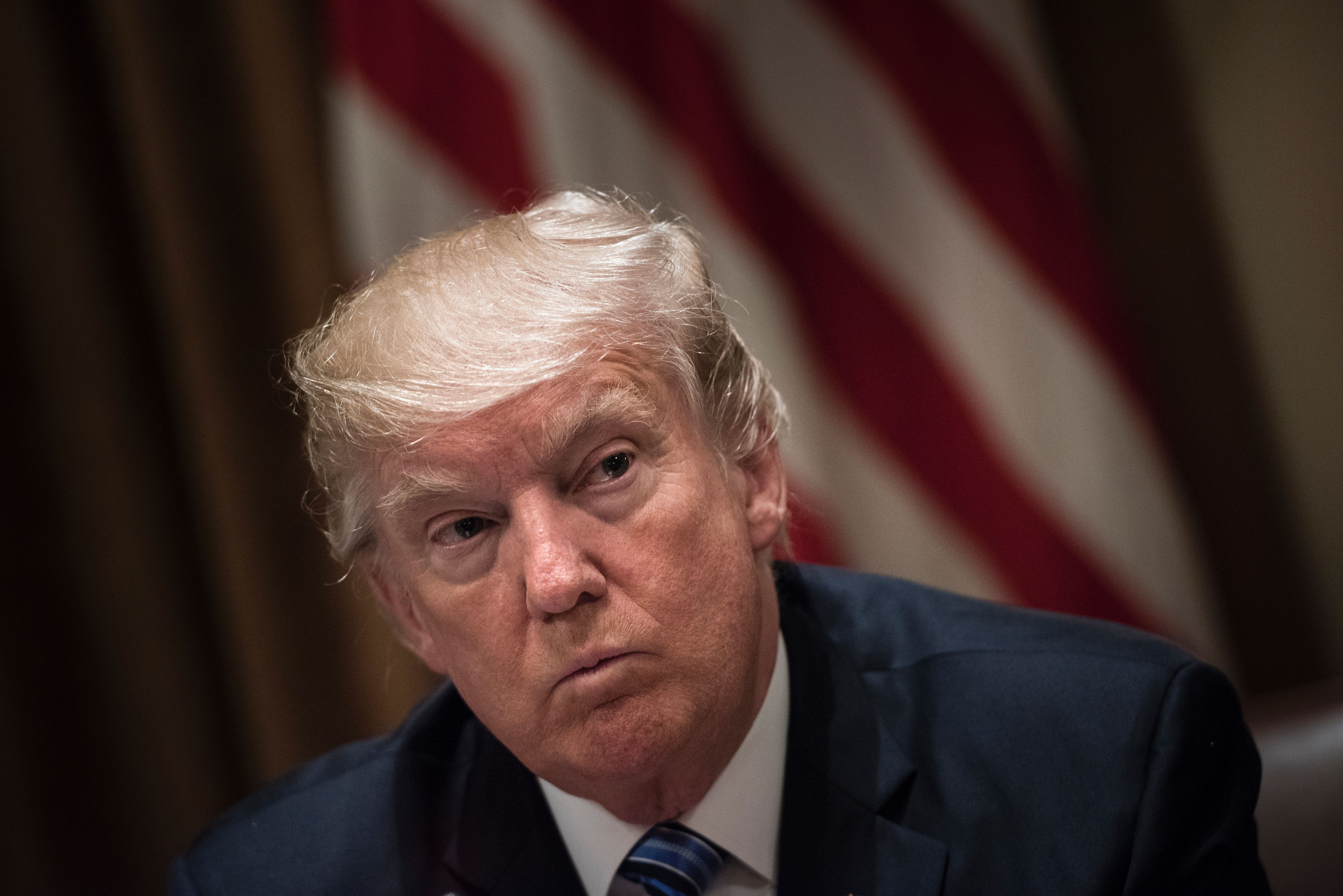The Trump-Russia problem no one's talking about
The most scandalous Trump-Russia connection may have come nearly a decade before he even ran for president


The release of damning emails regarding Donald Trump Jr.'s contact with Russians during the 2016 campaign may turn out to be a blessing for the White House. The salacious, Hollywood-esque storyline of Russian election meddling draws attention away from more mundane, less exciting, but ultimately far more difficult to answer questions about financial connections between President Trump's business empire and Russia.
In 2004, President Trump paid $41.35 million for a Palm Beach, Florida, mansion formerly owned by Abe Gosman, a health-care executive. Dubbed "Maison de L'Amitie," the property at 515 N. County Road was classic Trump — huge, flashy, and resplendent in the "late Baroque brothel" style he favors. It is unclear how much time Trump or his family spent living in the property, being only one of many under his control at the time.
Barely four years later and without having made improvements, Trump sold the property to Russian billionaire Dmitry Rybolovlev. The sale to Rybolovlev, who made billions in an unglamorous industry by cornering the Asian market in potash (a fertilizer) with his company Uralkali, raised eyebrows for two reasons. First, the purchase price of $95 million was not only by far the most ever paid for a home in swanky Palm Beach, but also more than twice what Trump paid four years earlier. More curiously, Rybolovlev has never seen or visited the property — not before he agreed to pay that staggering price, nor since the sale was completed.
The Week
Escape your echo chamber. Get the facts behind the news, plus analysis from multiple perspectives.

Sign up for The Week's Free Newsletters
From our morning news briefing to a weekly Good News Newsletter, get the best of The Week delivered directly to your inbox.
From our morning news briefing to a weekly Good News Newsletter, get the best of The Week delivered directly to your inbox.
A Rybolovlev subsidiary called County Road Property LLC purchased the property and transferred it to a trust. In high-profile divorce proceedings with his wife over the next several years, Rybolovlev's explanation for the outsized purchase price and his intentions for the property changed frequently. When his divorce was finally settled in 2015, the home was demolished and divided into three lots.
Fast forward to 2016. Journalists found at least three instances in which Trump's campaign aircraft and Rybolovlev's private Airbus 319 landed in the same city within an hour of one another on the dates of Trump campaign rallies. Trump's claim that the two men never met despite their mammoth real estate transaction is tenuous, though characteristically the president categorized speculation about connections to Rybolovlev as baseless.
While any relationship between Trump and Rybolovlev is indeed limited to speculation at present, their curious real estate transaction is a well-documented fact. Now, as President Trump feels increasing heat from the investigation of Special Counsel Robert Mueller, the Palm Beach deal is one of many aspects of his personal and corporate finances with ties to Russia that are likely to come under scrutiny. Shortly after Trump made a strong statement opposing Mueller delving into his family's finances, it was reported that Mueller would indeed be doing so. This represents a major turning point; Trump's finances will be scrutinized not merely by the media and in online gossip but in an official investigation led by an ace team of government experts.
Maybe Rybolovlev is a spectacularly indifferent and poor investor. If that's the case, so be it. But otherwise, there are really only two potential explanations for the sale — and both are highly problematic for Trump.
A free daily email with the biggest news stories of the day – and the best features from TheWeek.com
One is that the property was purchased sight-unseen for the outsized sale price so that Rybolovlev could conceal assets for a divorce he believed was impending. This immediately raises the question of why Trump or his company would assist a person he claims he has never met in skirting the law to the tune of $95 million.
The other, more troublingly, is that the purchase price represents Russian interests seeking legitimate cover for making payments to Trump. There is no concrete proof of this. But in recent years, two members of Congress — Randy "Duke" Cunningham and Aaron Schock — have been indicted (and in Cunningham's case, incarcerated) for using the sale of a home at a wildly inflated price as cover for the payment of bribes by private interests. Purchasing property over its market value to conceal a transfer of funds is a common technique familiar to investigators of white-collar crime.
Again, no publicly available evidence points toward either of these conclusions at the moment. But if neither explanation is valid, then the question begs: What does account for the odd transaction?
As unpleasant as the hoopla surrounding meetings between Trump campaign personnel and family members and Russian officials in the summer of 2016 may be for the White House, that may end up being only a sideshow to the more important matter of Trump's extensive pre-election financial ties to Russians.
The release of emails regarding Donald Trump Jr.'s contacts during the campaign may, at least in the short term, be a blessing for the White House. The more salacious and engaging storyline of Russian election meddling draws attention away from more mundane, less exciting, and ultimately far more difficult-to-answer questions about financial connections between Trump's business empire and Russia. Mueller's intention to devote part of his investigation to those matters is an ominous sign for the White House that rather than fading away, the Trump-Russia problem is transforming into something much more serious.
Ed Burmila is an Assistant Professor of Political Science at Bradley University. He lives in Chicago and blogs politics at Gin and Tacos.
-
 Bari Weiss’ ‘60 Minutes’ scandal is about more than one report
Bari Weiss’ ‘60 Minutes’ scandal is about more than one reportIN THE SPOTLIGHT By blocking an approved segment on a controversial prison holding US deportees in El Salvador, the editor-in-chief of CBS News has become the main story
-
 Has Zohran Mamdani shown the Democrats how to win again?
Has Zohran Mamdani shown the Democrats how to win again?Today’s Big Question New York City mayoral election touted as victory for left-wing populists but moderate centrist wins elsewhere present more complex path for Democratic Party
-
 Millions turn out for anti-Trump ‘No Kings’ rallies
Millions turn out for anti-Trump ‘No Kings’ ralliesSpeed Read An estimated 7 million people participated, 2 million more than at the first ‘No Kings’ protest in June
-
 Ghislaine Maxwell: angling for a Trump pardon
Ghislaine Maxwell: angling for a Trump pardonTalking Point Convicted sex trafficker's testimony could shed new light on president's links to Jeffrey Epstein
-
 The last words and final moments of 40 presidents
The last words and final moments of 40 presidentsThe Explainer Some are eloquent quotes worthy of the holders of the highest office in the nation, and others... aren't
-
 The JFK files: the truth at last?
The JFK files: the truth at last?In The Spotlight More than 64,000 previously classified documents relating the 1963 assassination of John F. Kennedy have been released by the Trump administration
-
 'Seriously, not literally': how should the world take Donald Trump?
'Seriously, not literally': how should the world take Donald Trump?Today's big question White House rhetoric and reality look likely to become increasingly blurred
-
 Will Trump's 'madman' strategy pay off?
Will Trump's 'madman' strategy pay off?Today's Big Question Incoming US president likes to seem unpredictable but, this time round, world leaders could be wise to his playbook



